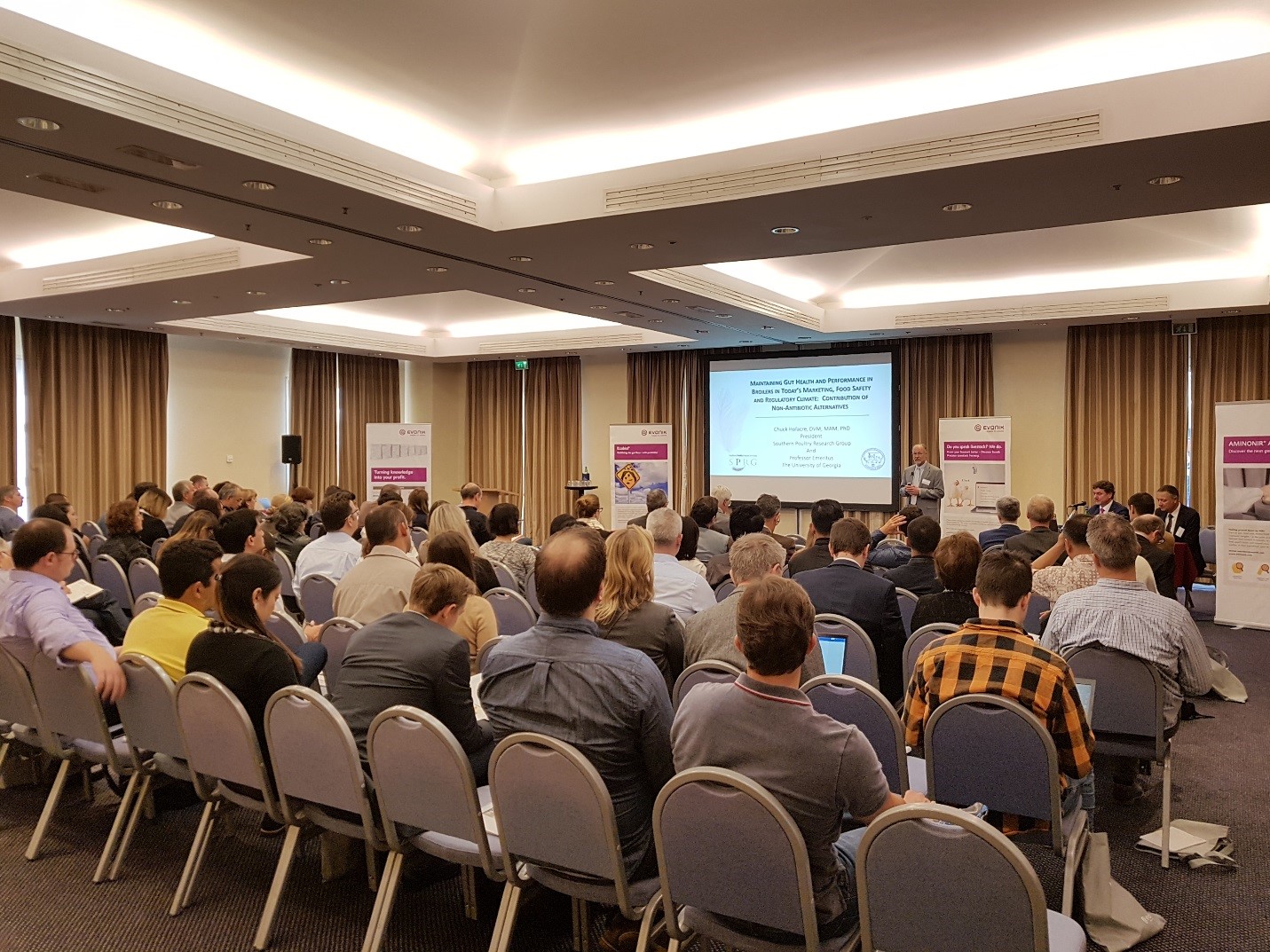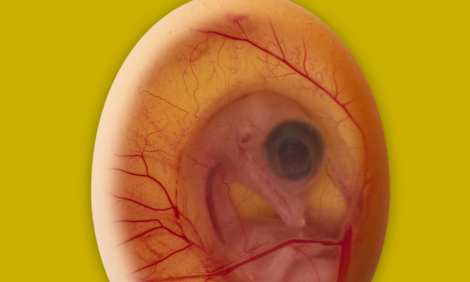



The future management of intestinal health in poultry
Evonik showcases its innovation portfolio at the Conference on Poultry Intestinal Health in Rome.Optimum strategies for improving gut health, technological developments and the importance of cooperation between different stakeholders within the feed production chain, were among the topics discussed when around 110 delegates from the 6th Conference on Poultry Intestinal Health symposium in Rome joined a satellite seminar run by Evonik.

© Evonik
Attendees including representatives from the feed and poultry industry, universities, research partners, veterinarians and consultants, gathered to hear about the latest research and ideas on gut health in poultry.
Strategy, challenges and opportunities
Presenters included Álvaro Ortiz, Technical Service Manager Gut Health Solutions, who introduced the unique strain Bacillus amyloliquefaciens CECT 5940, branded as Ecobiol®. He explained its features, and performance and how it offers a consistent performance under commercial conditions. He also covered the mode of action of Ecobiol® from the practical standpoint, reviewed trials and displayed the convincing results of latest Ecobiol® meta-analysis.
Prof Stefan Pelzer, Director Innovation Management Animal Nutrition, spoke about Evonik’s gut health strategy and provided insight in its Precision Livestock Farming program and its unique, science-based approach towards nutrition, animal health, and farming. He also presented Evonik’s efforts on "Strain discovery and in vitro profiling for probiotic development". After giving an insight into the strain selection process, he expanded into the multiple modes of action of Ecobiol® proven in vitro as well as in vivo.
Prof Charles Hofacre from the Southern Poultry Research Group, Georgia, USA, gave a comprehensive speech about "Maintaining gut health and performance in broilers in today’s marketing, food safety and regulatory climate: Contribution of non-antibiotic alternatives". He explained the regulations on antibiotic-free livestock production in the US and after talking about his own experience on gut health issues, he also made the audience aware about the importance of cooperation between different stakeholders within this production chain.
Prof Richard Ducatelle from the University of Ghent, Belgium, devoted his speech to "Gut health biomarkers and identifying the optimum strategies for improving gut health". He presented the different causes of gut health problems, significance of necrotic entiritis, and possible biomarkers to detect early conditions which might evolve into necrotic enteritis problems.
The topic of "Managing gut health challenges in poultry: Integrating nutrition and health" was covered by Dr Kiran Doranalli, Technical Director Gut Health Solutions, at Evonik. He explained the main drivers towards new nutritional solutions in poultry, revealed the importance of interaction between dietary protein and probiotics and talked about the advantage of feeding low protein diets.
Dr Carlos Piñeiro from the PigChamp Institute, Segovia, Spain, discussed "Digital transformation in poultry – a huge opportunity for the sector". He talked about innovative approaches and respective digital solutions which can help to process and integrate "Big Data" in daily farm management routines, and how to extract the value these data hide.
The seminar prompted lively discussions as well as plenty of positive feedback from attendees. It was hosted by Dr. Mario Müller, Technical Service Director Animal Nutrition. Claus Wassermeyer, Vice President Sales, Europe, gave an update on Evonik’s business and future strategy.
The Poultry symposium, which took place in April, was organised by the Intestinal Health Scientific Interest Group (IHSIG).










